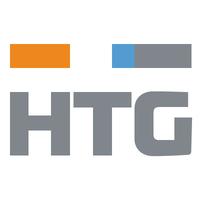PHOENIX—September 26, 2022—A deep dive into the proteins and protein activities of human tumors grown in mouse models expands the potential therapeutic pathways to treat medulloblastoma, according to a new study published in the Journal of Proteome Research. Continue reading
Category Archives: AZBio News
Phoenix Mayor Kate Gallego honored with AZBio Public Service Award
The path for a cure for cancer will run through Phoenix.
Sit down with Phoenix Mayor Kate Gallego and bring up the subject of biosciences, you will experience a burst of energy and insight about the innovation in healthcare taking place across Phoenix, including the growth of businesses creating jobs, and a personal passion that, “the path for a cure for cancer will run through Phoenix.”Continue reading
BMSEED Awarded Grant to develop a physiologically relevant pre-clinical drug screening platform for Alzheimer’s Disease and Traumatic Brain Injury
New Microfluidics Platform with embedded Stretchable Microelectrodes for Research on Alzheimer’s Disease and other Neurological and Neurodegenerative DiseasesContinue reading
Exact Sciences Awards Grants To Federally Qualified Health Centers Focused On Improving Colorectal Cancer Screening Of Vulnerable Populations
MADISON, Wis., Sept. 22, 2022 — Exact Sciences Corp., a leading provider of cancer screening and diagnostic tests, today awarded $525,000 in grants to eight federally qualified health centers focused on improving colorectal cancer screening rates in vulnerable populations.Continue reading
Vidium Animal Health® SearchLight DNA® Added to Antech Diagnostics® Portfolio of Tests Expanding Veterinarians’ Ability to Diagnose and Treat Cancer in Dogs
PHOENIX—September 22, 2022—Vidium Animal Health announced today that it has entered a reseller agreement with Antech Diagnostics to provide SearchLight DNAⓇ, the best-in-class genomic diagnostic for cancer in dogs, to Antech’s large North American customer base. Genomic diagnostics in general, and SearchLight DNA in particular, are a key part of expanding the use of personalized medicine in canine patients.
Continue reading
Aqualung Therapeutics Corp. Awarded $4.8M Dollars From National Institute of Health (NIH) To Develop the ALT-100 Monoclonal Antibody for Pulmonary Arterial Hypertension and Inflammatory Bowel Disease
TUCSON, AZ / ACCESSWIRE / September 21, 2022 / Aqualung Therapeutics, an immunotherapeutics biotech company with an anti-inflammatory and anti-fibrosis therapeutic platform for serious unchecked inflammatory and fibrotic disorders, has been awarded two 3-year NIH FAST-TRACK AWARDS [R42DK135208; R42HL160422) to support development of ALT-100, a humanized monoclonal antibody (mAb) therapy for the chronic indications of Pulmonary Arterial Hypertension (PAH) and Inflammatory Bowel Disease (IBD). The ALT-100 mAb targets the inflammation-inducing damage-associated molecular pattern protein eNAMPT, and is currently in Phase 1A human safety trials.
Saving money for Medicare by abandoning new drugs for Medicare patients
By Steve Potts, PhD
The new Inflation Reduction Act was written in part to improve access to prescription drugs. But just like many potent drugs, the law too has side effects. As a small biotech drug developer, here’s the most toxic: It’s forcing me to choose to develop a drug for kids instead of a drug for their grandparents, when I could be developing both.Continue reading
Putting Patients First – Biomarker Testing in Arizona
In 2022, ACS CAN led a successful legislative campaign in Arizona to expand access to biomarker testing. Gov. Ducey, Rep. Regina Cobb, Dr. Rachna Shroff and Holly Hill reflect on the impact this law will have on patients across the state.
Arizona Alzheimer’s Disease Research Center (ADRC) Development Grant: Request for Proposals
APPLICATION RECEIPT DATE:
Optional Pre-proposal Deadline: September 30, 2022 Full Application Deadline: October 28, 2022 Anticipated Start Date: July 1, 2023
PURPOSE: The Arizona Alzheimer’s Disease Research Center (ADRC) invites applications for development grant proposal studies to support basic or clinical biomedical, translational, epidemiological, caregiving, educational, or behavioral studies in AD, ADRD or brain aging research. Developmental projects are intended to help establish the basis for applying for further research funding and further development of the applicant’s career in these areas of research.
The Fundación Instituto Valenciano de Oncología Leverages HTG Technology for Breast Cancer Laboratory-Developed Test
TUCSON, Ariz., Sept. 20, 2022 (GLOBE NEWSWIRE) — HTG Molecular Diagnostics, Inc. (Nasdaq: HTGM) (HTG), a life science company advancing precision medicine through its innovative transcriptome-wide profiling technology, announced that the Fundación Instituto Valenciano de Oncología, located in Valencia, Spain (IVO), with its partners, the Fundación Pública Andaluza Progreso y Salud (FPS) and the Centro de Investigación Biomédica en Red (CIBER), have developed a laboratory-developed test (LDT) (the MPD Test) for the assessment of breast cancer recurrence based on their use of the HTG EdgeSeq™ technology.Continue reading

